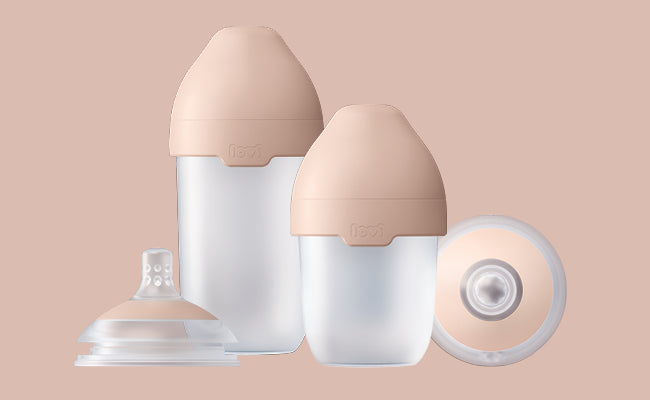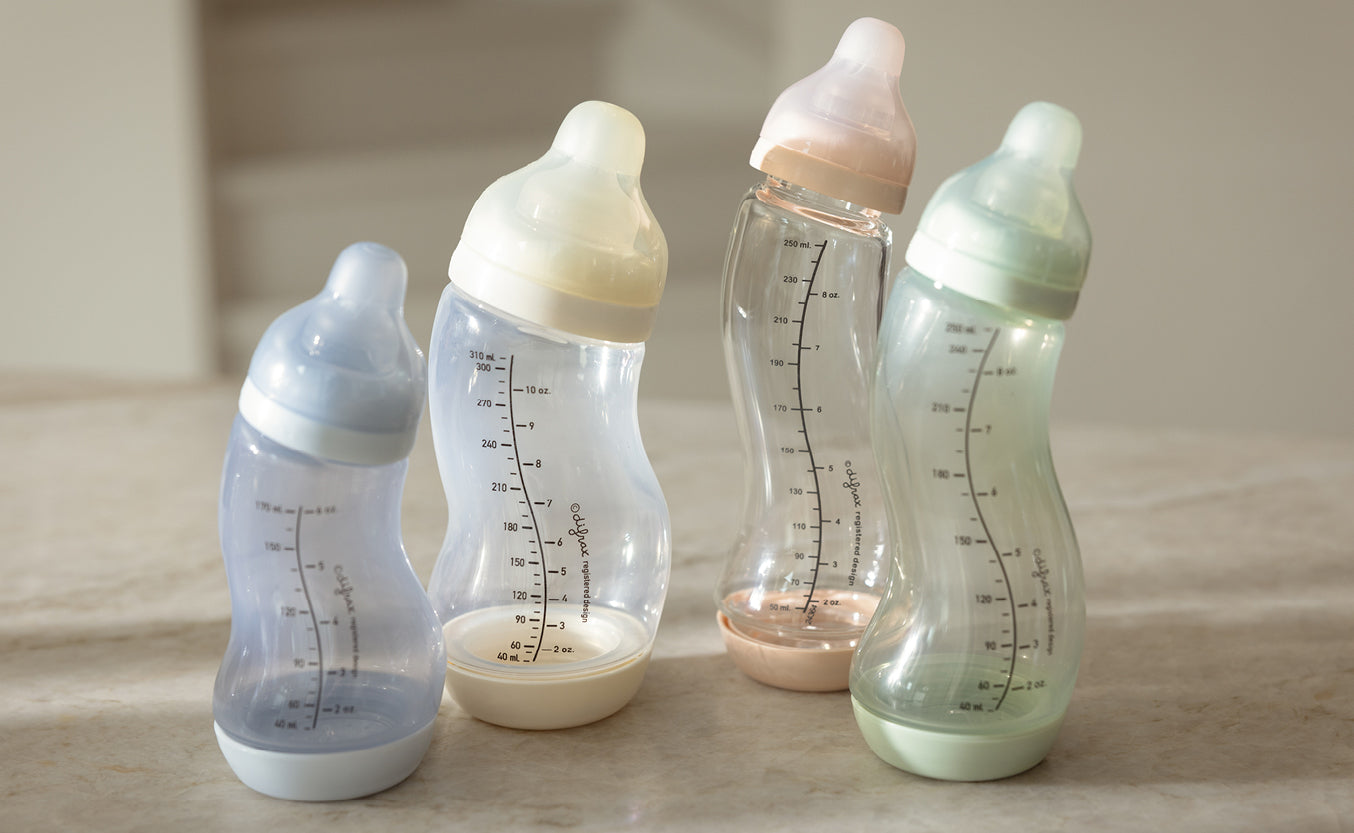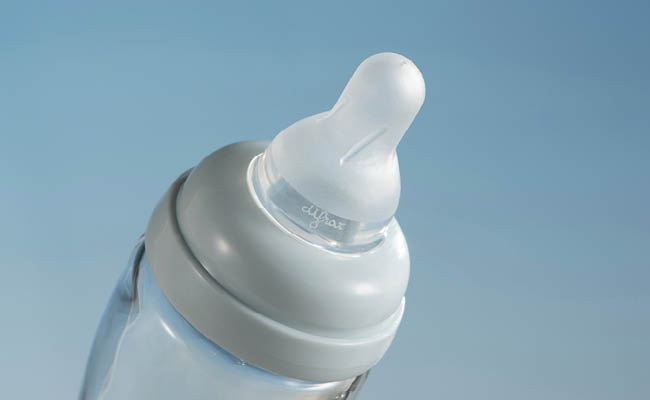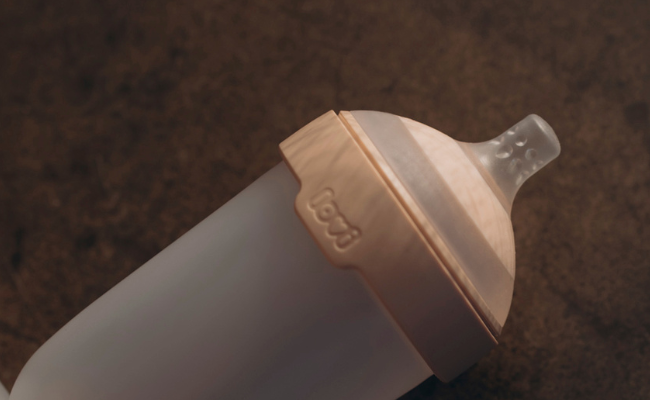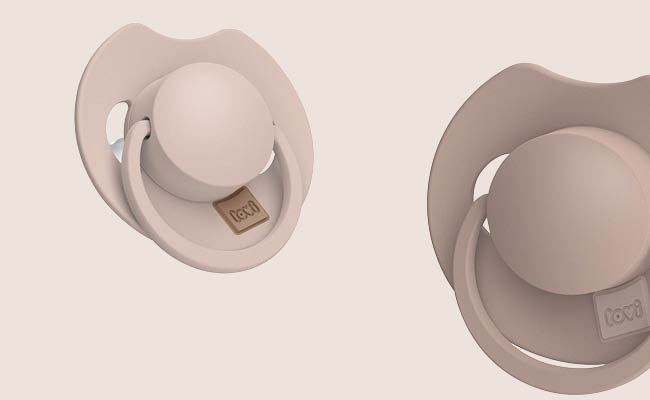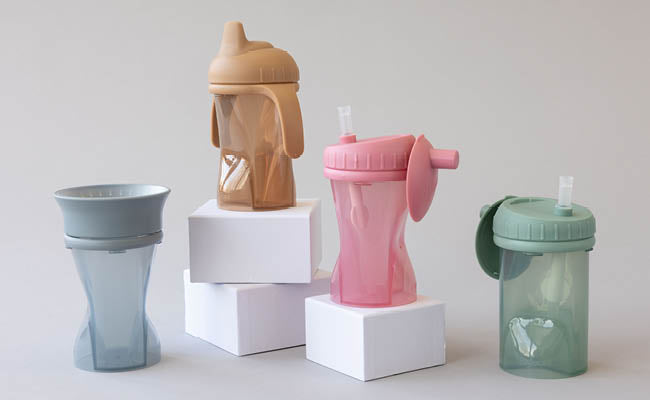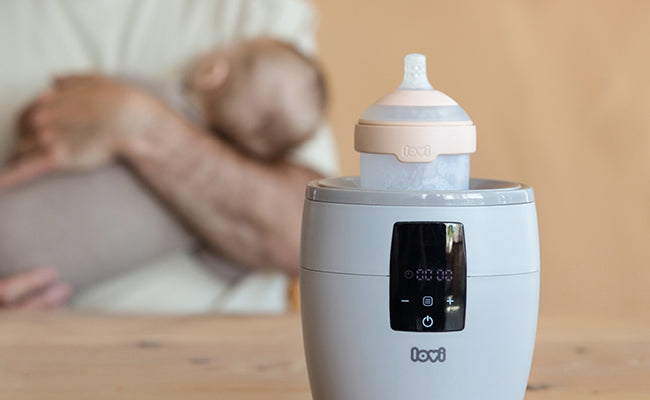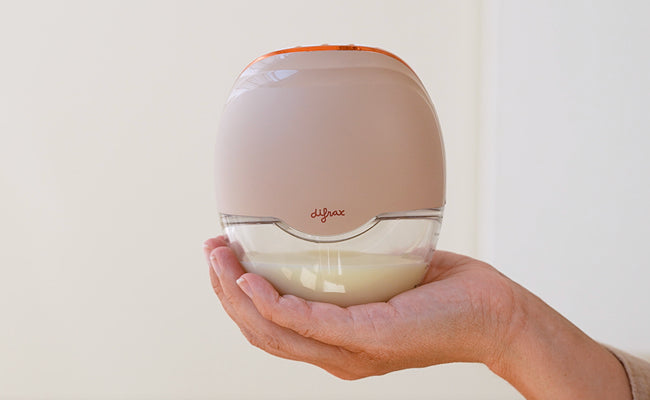
What is hidden reflux and how do you recognize it in your baby?
If your baby seems to have discomfort with no apparent cause, hidden reflux could be a possible explanation. Hidden reflux, or silent reflux, occurs when stomach contents flow back into the esophagus without the baby visibly spitting out milk. It can cause discomfort, but it is often not recognized by parents because there is no visible spitting up. In this blog, we will help you recognize the signs and what can you do about it?
What exactly is hidden reflux?
With normal reflux, your baby gives back milk, but with inflected reflux, this does not happen. Instead, stomach contents remain in the esophagus. This can lead to pain and discomfort, which can cause your baby to cry. The difference with regular reflux is that your baby does not spit out milk, which is common with reflux.
What can you do about it?
If you suspect your baby has reflux you can do the following:
Feed your baby in a straighter position this helps reduce reflux.
Minimize the amount of air your baby ingests while feeding.
Consult a doctor: a doctor can confirm the diagnosis and provide appropriate treatment.
Provide a quiet eating environment for feeding your baby. This helps your baby to concentrate and digest the food, preferably for up to half an hour after feeding.
It may be helpful to choose a baby bottle that is specially designed to reduce reflux and air swallowing. For example, some bottles have a nipple and bottle shape that make feeding calmer and more comfortable for your baby, which can be especially important with reflux.

What causes hidden reflux in babies?
As we mentioned earlier, hidden reflux occurs when stomach contents flow back into the esophagus without the baby spitting out milk. The main cause of this is too much air swallowing.
If your baby swallows a lot of air during feeding, it can increase pressure in the stomach and cause reflux. There are several causes for this:
- Lying down position after feeding: A lying position does not help keep the stomach contents in their proper place, this can make reflux easier to occur.
- Feeding too much at once: Drinking too much milk can overload the baby's stomach, and this can make reflux worse.
- Swallowing too much air: When the baby swallows too much air during feeding, it creates additional pressure on the stomach, increasing the risk of reflux.
- Immature digestive system: In newborn babies, the digestive system is often not fully developed. The sphincter between the stomach and esophagus can sometimes be too weak, allowing stomach contents to come up easily.

What are the symptoms of hidden reflux and how do you diagnose it?
Symptoms of hidden reflux:
- Poor sleep: Frequent waking due to discomfort.
- Crying after feeding: Pain due to reflux of stomach contents.
- Poor appetite: Difficulty eating due to pain.
- Frequent gagging: Gagging without visible spitting up.
- Coughing or sore throat: Irritation of the esophagus by stomach contents.
- Smelly breath: Due to reflux of stomach acid.
- Swallowing difficulties: Difficulty swallowing due to irritation.
- How do doctors make the diagnosis?
Doctors often make the diagnosis based on:
- Symptoms and medical history.
- Physical examination.
- Tests such as a pH measurement or endoscopy to examine whether stomach acid is entering the esophagus and causing damage.
What are the treatments and solutions for hidden reflux?
If your child has hidden reflux, fortunately there are several treatment options and solutions available, from feeding tips to medical interventions.
1. Adjusting feeding
- Smaller, frequent feedings: Feed your baby more frequently, but with smaller amounts of milk to prevent stomach overload.
- Upright feeding position: Feed your baby in a more upright position to reduce the risk of reflux.
- Prevent air swallowing: Make sure your baby drinks calmly and does not swallow air while feeding.
2. Adjustments after feeding
- Keeping upright after feeding: Keep your baby upright for at least 20-30 minutes after feeding to prevent reflux of stomach contents.
- Quiet feeding environment: Provide a calm, relaxed environment during feeding to reduce stress, which can aggravate reflux.
3. Medical treatments.
- Antacids: In some cases, a doctor may prescribe antacids to reduce acidity in the stomach and relieve pain.
- Prokinetics: These medications help move stomach contents to the intestines faster, reducing the chance of reflux.
- Change of diet: If your baby has a cow's milk allergy or intolerance, a doctor may recommend a modified diet.
4. Surgical options.
- In rare cases, when other treatments don't work, surgery, such as fundoplication, may be considered to strengthen the sphincter between the stomach and esophagus.

When should you see a doctor for hidden reflux?
Although many cases of hidden reflux can simply be applied at home, there are situations in which it is important to consult a physician.
1 Persistent or worsening symptoms
If the symptoms of hidden reflux, such as crying after feeding, poor sleep or decreased appetite, do not improve or worsen, it is important to consult a doctor.
2 Weight loss or growth problems
If your baby has trouble growing or loses weight due to the pain of reflux, medical attention may be necessary to prevent it from affecting health.
3 Severe cough or breathing problems
If your baby suffers from a persistent cough, difficulty breathing or signs of pain when swallowing, it is wise to consult a doctor.
4 Crying for no apparent reason
If your baby cries extremely much without an obvious cause, this may indicate discomfort due to reflux, and it may be useful to investigate further with professional help.
5 Specialist help
If your doctor suspects severe reflux, he or she may refer you to a specialist, such as a pediatrician or gastroenterologist. In some cases, tests, such as pH measurement or an endoscopy, may also be needed to determine the severity of the reflux.
Conclusion
Are you concerned about your baby's behavior or health, or notice that symptoms are not abating? If so, don't hesitate to contact a doctor. It is quite understandable that you

